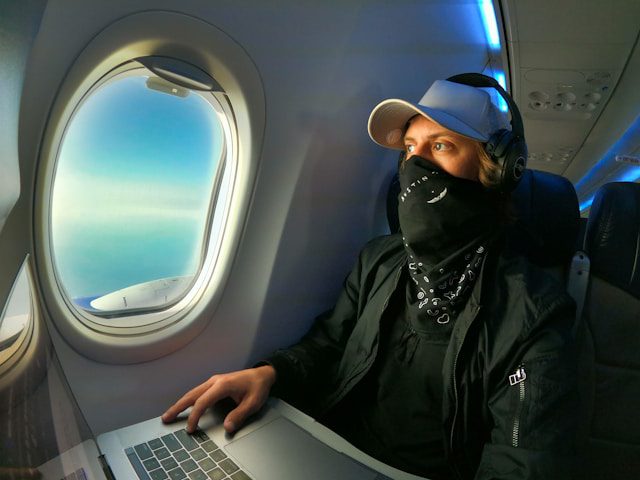A whole new community of entrepreneurs has emerged in the last several years. These digital nomads have laptops, live digital lifestyles, and are mobile workers. The blog provides a guide to digital nomad visas, including visa renewal processes for digital nomads (remote work), how to obtain a digital nomad visa, which countries issue digital nomads visas, and more.
Being geographically indifferent,digital nomadschoose to work in unusual places like cafés, beaches, or hotel rooms. Often referred to as “digital nomads,” these business owners use technology to work remotely from various locales. You must have legal rights to operate in other countries, necessitating a full grasp of the procedure.
The topic of today’s blog article is digital nomad visas, including visa renewal processes for digital nomads, how they operate, how to apply, which countries issue digital nomads visas, and more.
Digital Nomad Visa Overview
An individual can legally work remotely while travelling outside their home country or place of permanent residence using a digital nomad visa.

Programs administered by the government might sometimes be referred to as digital nomad visas. Unique titles for these programs have been given to certain locations, such as the Cayman Islands, where the Global Citizen Concierge Program is one example. It is sometimes referred to by a broad phrase like a residency permit in some areas.
Students are eligible to apply for digital nomad visas in addition to workers. Still, costs and prerequisites could differ.
How To Renew Digital Nomad Visa
You usually need to submit a renewal application to renew a digital nomad visa. This may involve providing updated documentation, demonstrating continued remote work or income, and complying with any additional requirements set by the immigration authorities.
Digital nomads Requirements
Visa requirements and policies for digital nomads differ from nation to nation. Online applications for digital nomad work visas are available for nationals of a few countries. However, some require petitioners to apply for visas through an embassy or consulate.
Remote workers must review the qualifications and application process for a visa for digital nomads. They can contact diplomatic embassies to request help and information on how digital nomad visas operate.
In general, distant workers require;
- Evidence of consistent revenue and
- A valid passport that meets the requirements for applying for a digital nomad visa.
Additionally, a few nations charge an application cost for visas. Remote workers need to verify the visa requirements of their intended country since they can demand supplementary papers such as proof of vaccinations, medical insurance, and so on.
Also, the applicant’s eligibility is determined by a few additional considerations and the fact that they have proper documents.
How to Apply for a Digital Nomad Visa Step-by-Step
To apply for a visa for digital nomads, candidates must adhere to the guidelines given;
Step 1: Complete the application.
First, complete the application form to obtain a digital nomad visa. While some nations allow applicants to fill out forms online, others demand that forms be completed on paper. Candidates must make sure to include all correct and current information.

Step 2: Schedule a meeting with the consulate or embassy
Locating an embassy, consulate, or visa office is the next step. Applying at a neighbouring embassy could be required of applicants, depending on their nation of residency.
However, The applicant must schedule an appointment to submit the application and attend the interview after finding the visa office.
Step 3: Gather the necessary paperwork
After completing the application form, the candidate must gather the paperwork for the procedure. Sometimes, one might need to translate or validate papers with an apostille stamp.
In general, the following paperwork is needed for a visa for digital nomads:
Application for a Visa
- The passport
- Recognize images
- Evidence of financial income (quantity, source, etc.)
- Health insurance for travel
- civil records such as birth certificates, resumes, and credentials.
- Evidence of remote employment includes a work contract, company license, customer information, etc.
Step 5: Send in your application.
Filling out the paperwork is the last step in applying for a digital nomad visa. One must provide the completed form and supporting documentation to the embassy or consulate. The applicant must also pay the cost and show up for the visa interview.
Note: Prior payment of the visa application cost is mandatory for applicants in some countries. The payment receipt and the remaining application materials must subsequently be submitted.
Work Permission under the Digital Nomad Visa Initiative
A digital nomad visa gives workers legal permission to work abroad while meeting the demands of both companies and employees in a constantly evolving future work environment. It meets the demands of both employers and workers in a workplace that is always changing in the future.
Put differently, a work visa for digital nomads provides a means of immigration that allows people to travel freely across borders and bring their income-generating jobs with them.
Many digital nomads visit several nations while staying in their host nation for shorter periods. These people frequently travel on tourist visas or visa waivers. However, working remotely is prohibited under visitor or tourist visas.
That said, it’s also true that no authorities follow digital nomads when arriving in their final nation. Cafés and bookshops are not places where they trespass into to do remote work.
However, additional border checks may become more common due to the growing number of digital nomads. To find out if somebody is violating the restrictions of a tourist visa, customs officers may also inquire about visitors’ activities.
Therefore, digital nomads need to find out about digital nomad work visas if they are certain they can operate remotely from their target nation for an extended period.

With a digital nomad visa, people can work lawfully overseas. By taking advantage of perks for temporary residents, they may guarantee a stress-free remote work environment.
Considerations for Selecting a Country for Digital Nomad Visa
1. Duration and Renewal of Visas
When selecting a digital nomad visa, the length of the visa and its renewal are crucial factors to consider. While some nations allow lengthier periods or even the opportunity for an unlimited stay, others only provide short-term visas, usually lasting between three and twelve months.
To guarantee ongoing legality, it is essential to review the terms of the visa and comprehend the renewal procedure. For example, digital nomads can enter Estonia for a maximum of 12 months and then extend their stay by obtaining a new visa.
In contrast, a digital nomad’s stay in Croatia is permitted for a maximum of one year, with the possibility of an extension for an extra year. Digital nomads may plan their long-term stay and avoid additional headaches by researching the length of stay and alternatives for visa renewal.
2. Expenses and Fees for Applications
The price and application fees for visas for digital nomads differ per nation. There may be a one-time cost in certain countries and an annual fee in others. Processing fees or other administrative expenses might also be incurred.
For instance, the annual cost of a digital nomad visa in Estonia is €80, but the one-time application price in Croatia is €267. These expenses might affect your budget. Therefore, it’s crucial to consider them while organizing your trip to become a digital nomad. To select the best and most economical choice, don’t forget to investigate and contrast costs across national borders.
3. Requirements
The requirements for obtaining a visa for digital nomads differ per nation. Generally speaking, candidates must show they can sustain themselves financially while residing overseas. This entails demonstrating that you have enough money to pay for living expenses and occasionally a minimal monthly income.
Applicants may also need proof of a clean criminal background and health insurance for their stay. Regarding the kind of visas accessible for digital nomads and the nature of remote employment, several nations can additionally have certain regulations.
For instance, Estonia demands that candidates be self-employed or have an active remote work contract. Conversely, Georgia accepts applications from independent contractors, remote workers, and company owners.
Before applying, it’s critical to satisfy all the requirements by carefully reviewing the eligibility requirements for each nation.
The ability to travel freely
Visas for digital nomads significantly benefit people who cherish their mobility flexibility. This feature enables remote workers who are digital nomads to travel to new places and experience various cultures.

What to look for in nations that provide visas to digital nomads
Choosing which nations to visit as a digital nomad might take time and effort. To decide where you should go, whether you’re thinking of a temporary stay or a long-term move, ask yourself these questions:
- Do I make the required minimum income?
- Will I be able to maintain a pleasant lifestyle?
- What’s the duration of my stay?
- What kind of climate is it?
- What is the internet’s speed?
- Exist coworking or coliving spaces and public areas that offer free internet and are suitable for remote work?
- Which language is being used? Do I want to learn about it?
- Does the application need an insurance certificate?
Knowing what you’re getting into before you arrive is vital, even if you want to remain for a short while. You want your decision to make you happy!
Best Countries For Digital Nomads
Are you prepared to choose your upcoming digital nomad travel destination? Now, let’s get going!
1. Costa Rica
Costa Rica is more than simply a tourist destination; it’s adored for its Pura Vida easygoing atmosphere. It is now among the select few nations that invite digital nomads to its sandy coastlines. In addition to the well-known advantages of its wonderful climate, beach lifestyle, and affordable cost of living, Costa Rica provides remote workers who choose to make it their home with tax-free living.
To accommodate the large number of digital nomads, Costa Rica is also home to several hostels and coworking spaces, such as Selina, with workstations and fast internet!
It will take around 15 days for the online application to be approved. If you demonstrate that you spent at least 180 days living in Costa Rica during the first year, your visa may be renewed for an extra year.
- Avg. Cost of living each month: $1,000–1,600
- Required minimum monthly income: $4,000 for families, $3,000 for individuals
- Visa type: Long-term (estancia) with a subcategory for service providers and remote workers
- Visa cost: $90 up in advance with the additional cost upon acceptance
2. Malta
With 400+ free public wifi hotspots and statewide 5G service, the stunning island of Malta is perfect for remote workers. You may work from home or at a local cafe while savouring a pastizz, a favourite snack! Despite being an island, you won’t be alone at all. Regular flights to the European continent at reasonable prices provide an excellent base to explore.
You must have a foreign employment contract, be the owner or a co-owner of a registered business or be a freelancer with overseas agreements to be eligible for the remote worker visa.
Candidates must provide evidence of temporary housing in Malta, such as an Airbnb rental and health insurance. The processing time might reach thirty days. Malta offers a one-year visa for digital nomads, which can be extended twice for three years.
- Avg. Cost of living each month: $1,200–1,600
- $2,956 (€2,700) is the minimum monthly income necessary.
- Visa type: Permit for Nomadic Residence
- Visa fee: $328 (€300).
3. Greece
Greece has among Europe’s lowest housing costs—it surpasses Portugal and Spain. Food, shopping, and transportation expenses are all reasonably priced so that you can save money for other trips in Greece. Furthermore, over 90% of Athens and Thessaloniki have access to 5G service, and the country’s download speed is about 37 Mbps.
Greece offers a one-year visa for digital nomads, which can be extended to become a residency permit if you cannot leave the country or its culture. If you’re seeking a long-term solution, you can extend the original two-year residence permit for five years. You can apply for permanent resident status after five years.
- Avg. Cost of living each month: $900–1,200
- $3,832 (€3,500) is the minimum monthly income necessary.
- Visa type: Digital Nomad Visa
- Visa fee: $246 (€225).
4. Mexico
Mexico is an excellent area to begin your journey as a digital nomad if you intend to visit back home often. Most major US airports provide reasonably priced flights with suitable journey times. An increasing number of international remote workers who enjoy our southern neighbour’s food, people, music, and culture are moving there.
The average internet speed in Mexico is 46 Mbps, and major cities like Mexico City provide excellent coworking spaces for digital nomads to meet new people and do tasks. The Mexico temporary residency visa duration ranges from six months to four years.
- Avg. Cost of living each month: $750– $1,000
- $3,635 is the minimum monthly income needed.
- Visa type: Visa for Temporary Residence
- Visa fee: $51, based on duration of visa
5. Portugal
Portugal recently introduced a new visa for remote workers to replace the D7 visa, which was popular among foreigners. Since then, the number of digital nomads choosing this nation has increased, and it’s easy to understand why: friendly locals, a reasonable cost of living, and gorgeous beaches are big draws for workers who don’t care where they work.
Portugal, located on the Iberian Peninsula, has a diverse landscape that appeals to all types of travellers, whether they stroll through serene woodlands or laze on the beach. Additionally, it’s compact enough to use all these features without compromising!
- Avg. Cost of living each month: $1,100–1,600
- For individuals, the minimum income necessary is $3,328 (€3,040).
- Visa type: D8 Digital Nomad Visa
- Visa fees: $83 (€75) for a stay of less than a year, $100 (€90) for a stay of more than a year
6. Spain
The long-awaited digital nomad visa for Spain is now here, and it will soon establish Spain as a top location for remote workers. To be eligible, you must earn 200% more than the federal minimum wage, possess health insurance, have a spotless criminal record, and have a pertinent degree to the position.
In stunning, sunny Spain, remote workers may take advantage of low tax rates and get up to 20% of their revenue from Spanish-based businesses. For instance, there are plenty of options for work in marketing, content production, and translation if you’re a freelance writer with proficiency in Spanish. The tech sector in Spain is expanding rapidly and is seeking foreign talent to help drive its expansion.
- Avg. Cost of living each month: $1,110–1,800
- The needed minimum income is $2,365 (€2160).
- Visa type: Telework Visa
- Visa fees: $190
7. Croatia
- Avg. Cost of living each month: $900–1,200
- The needed minimum income is $2,780 (€2,539).
- Visa type: Digital Nomads Temporary Stay Visa
- Visa application fees: $61.03 (€55.74) if submitted at the US local embassy, $50.86 (€46.45) if submitted in-country
US nationals can apply for a digital nomad visa in Croatia. A year’s stay is permitted in Croatia, technically requiring a residency permit rather than a passport. Unfortunately, there is no road to permanent residency as in other countries because you have to wait six months after your visa expires before applying again.
Just outside the seaside resort of Zadar, Croatia has fully embraced the digital nomad trend and even has a designated town for remote workers. Zadar and Croatia, in general, are particularly attractive options for anyone looking for affordable lodging and the opportunity to network with other international digital nomads.

8. Saint Lucia
You are welcome to work and reside in Saint Lucia as a digital nomad, whether your income is fixed or fluctuates monthly. Beautiful Saint Lucia, which is in the Caribbean, is one of the more affordable island travel locations nearby, with a cost of living that is less than that of the US and the UK.
Owing to its popularity as a travel destination, there are many flights to and from major US airports all year long, with great bargains.
Avg. Cost of living each month: $1,100–1,700
There is no minimum income needed!
Visa type: Non-Immigrant Visa
The price of a visa is $46 (EC$125) for a single entrance and $70 (EC$190) for multiple entries.
9. Brazil
Brazil is well-known for its energetic festivals, energetic cities, and crowded beaches with tourists. In addition, it is the world’s most biodiverse nation. You’ll have many chances to travel into the Amazon to see the variety of native Brazilian plants and animals, even if your base is in Rio or São Paulo.
We have fantastic news if you intend to stay in Brazil for an extended time! The duration of the Brazil digital nomad visa is up to a year, after which it can be extended for an additional year if you decide you can’t bear to leave the country and its people.
- Avg. Cost of living each month: $700–$1000
- $1,500 is the minimum income needed.
- Visa type: Digital Nomad Visa
- Visa cost: about $132
10. Bali, Indonesia
- Avg. Cost of living each month: $900–1,400
- $2,000 is the minimum necessary income
- Visa type: B211a Visa
- A 60-day single-entry visa costs USD 128 (2,000,000 IDR).
Indonesia’s province of Bali is an island paradise home to some of the greatest beaches on the planet. Digital nomads seeking a quick beach getaway may take advantage of fast internet and many coworking spaces and enjoy the fantastic weather and scenery for up to six months.
The best thing is that one-bedroom flats in Bali range from $300 to USD 500 per month on average, making living there quite reasonable. Work along the ocean and lead a more elegant, simpler life!
With these visas, people could get short-term tourist visas, which typically have time limits or require frequent entry and departure from the nation.
Professionals may concentrate on their business while taking advantage of the advantages of living in different places, seeing new places, and establishing international relationships with a digital nomad visa.
Digital nomads benefit from this flexibility to roam by expanding their horizons and learning important lessons from visiting other places, which advances their personal and professional development.
Digital Nomad Visa with Family: Facilitating Opportunities for Digital Nomads and Their Families
A Digital Nomad Visa with family provisions caters to the growing trend of digital nomads seeking to combine remote work with family adventures. This innovative visa option allows digital nomads to work and travel while ensuring that their family members can accompany them on their journey. Here are key aspects to consider:
1. Family Inclusion
Unlike traditional work visas, a Digital Nomad Visa with family clauses typically extends eligibility to immediate family members, including spouses and dependent children. This ensures that digital nomads and their families can share in the benefits of a location-independent lifestyle.
2. Application Process
The application process for a Digital Nomad Visa with family members may involve providing additional documentation, such as marriage certificates and birth certificates for dependents. Each country’s requirements may vary, so it’s essential for digital nomads to thoroughly research and fulfill the necessary criteria.
3. Duration of Stay
The duration of stay permitted under the visa often applies to both the primary digital nomad visa holder and their family members. Digital nomads and their families can enjoy the flexibility to explore new destinations together while maintaining a stable work environment.
4. Education for Dependents
Families considering a digital nomadic lifestyle may want to explore educational opportunities for their children. Some countries with Digital Nomad Visas allow accompanying children of digital nomads to enroll in local schools, providing a well-rounded experience for the entire family.
5. Healthcare and Insurance
Understanding healthcare provisions for family members is crucial for digital nomads. Digital nomads and their families should research and secure comprehensive health insurance that covers their family’s medical needs while residing in different countries.
6. Financial Considerations
Budgeting for a digital nomad family on the road involves factoring in accommodation, education, and healthcare costs. Digital nomads need to plan their finances thoughtfully to ensure a comfortable and sustainable lifestyle for themselves and their digital nomad families.
7. Community and Support
Joining digital nomad communities and support networks becomes even more valuable when traveling with a family. Connecting with other digital nomad families can provide digital nomads with valuable insights, tips, and a sense of camaraderie.
Frequently Asked Questions
1. Can you renew a digital nomad visa?
Yes, in many cases, digital nomad visas are renewable. However, the renewal process and conditions vary by country. It typically involves demonstrating continued eligibility and may have a maximum renewal limit.
2. How long is the digital nomad visa valid for?
The validity period varies by country. Digital nomad visas are typically issued for a specific duration, ranging from months to years. Renewal options are often available for those wishing to extend their stay.
3. How long does it take to process the digital nomad visa?
Processing times vary by country, ranging from a few weeks to a few months. Factors affecting processing times include:
- the efficiency of the immigration system,
- the completeness of your application, and
- the specific requirements of each country.
4. Can digital nomad visas lead to permanent residency?
Digital nomad visas can sometimes serve as a pathway to permanent residency. However, not all countries offer this option. Check the specific regulations of the country you’re interested in to understand the potential for transitioning from a digital nomad visa to permanent residency.
5. What is the background check for the digital nomad visa?
The background check typically involves.
- assessing your criminal record,
- verifying your identity, and
- ensuring you meet the eligibility criteria.
It aims to confirm that you pose no security risk and comply with the host country’s regulations.
6. What are the income requirements for digital nomad visas?
Yes, many countries impose minimum income thresholds for digital nomad visa applicants. This ensures that visa holders can support themselves financially during their stay. The income requirements vary and may depend on factors such as family size.

7. Does Having a Visa Make You a Digital Nomad?
No, being a digital nomad does not require a visa for remote workers. When someone wants to stay in a nation longer than a tourist visa allows, they need a digital nomad work visa.
An individual must fulfil the national visa criteria to be eligible for a digital nomad visa. Nevertheless, neither tourist nor digital nomad visas let them work for a local business in the nation.
8. Can I travel to other countries with a digital nomad visa?
Some digital nomad visas allow visa holders to travel freely within a specific region or group of countries. Check the visa regulations to understand whether you have the flexibility to explore neighbouring countries without additional visa requirements.
9. What happens if my digital nomad visa application is rejected?
If your application is rejected, you will typically receive notification and the reasons for the rejection. Some countries may allow you to appeal the decision or reapply after a specified period. Understand the specific policies of the immigration authority handling your application.
Feel free to tailor or expand on these answers based on the specific context or details you want to emphasize in your content.


